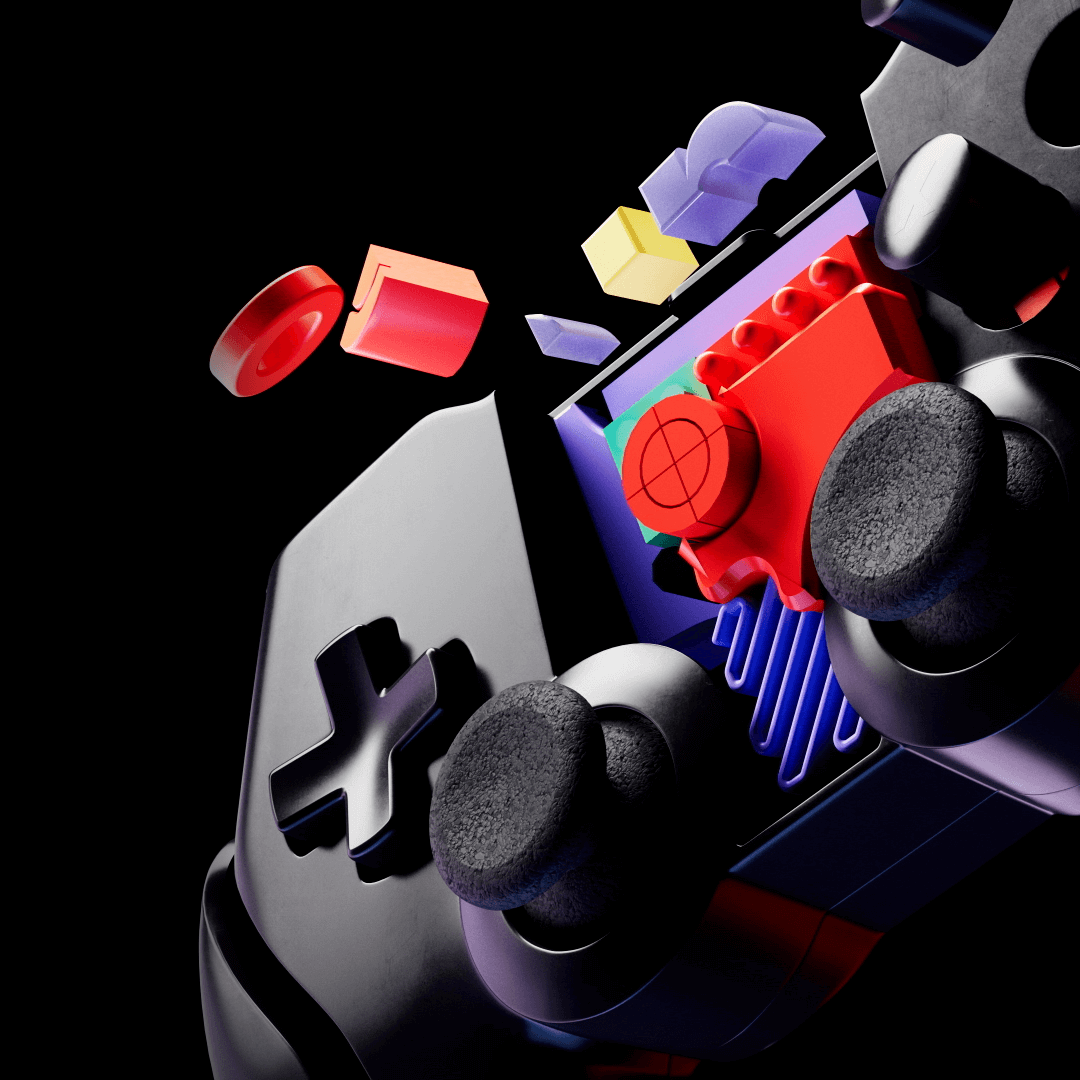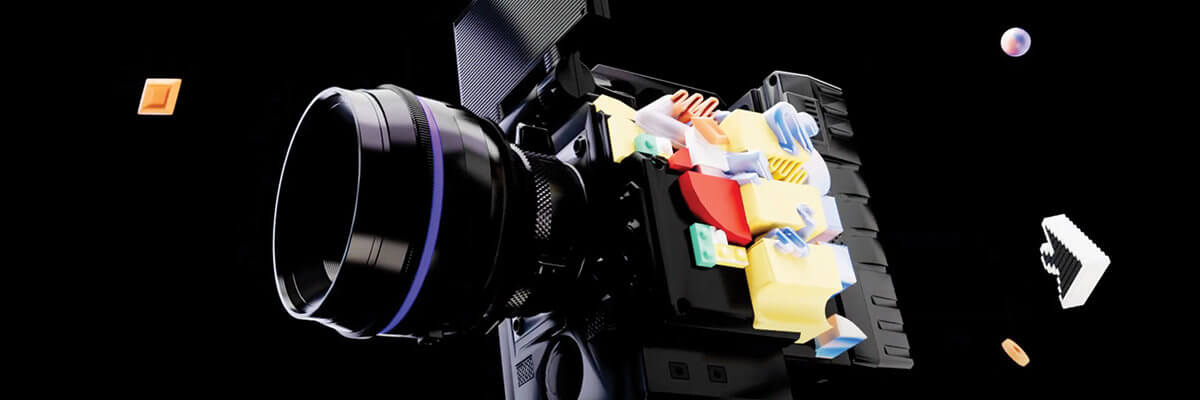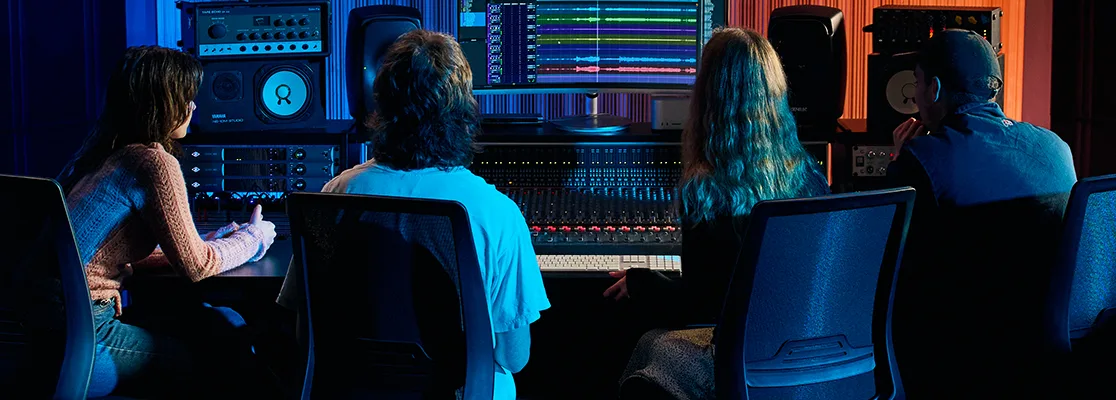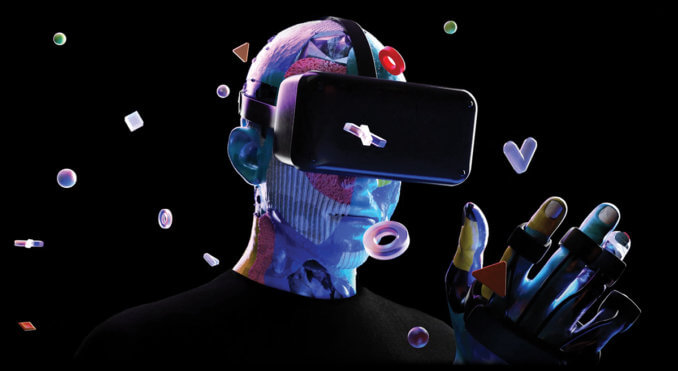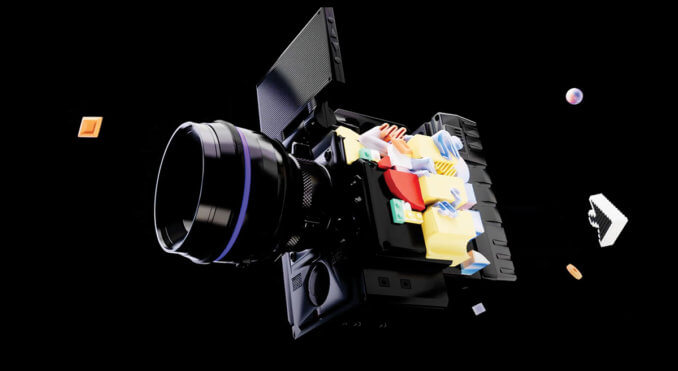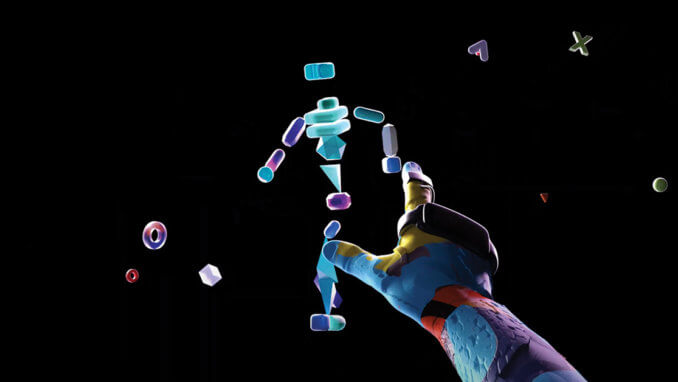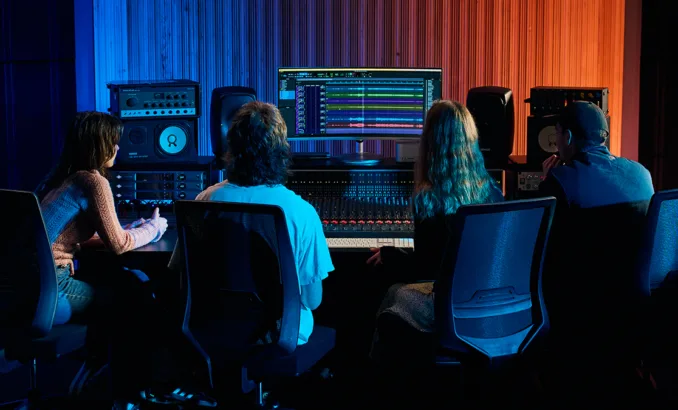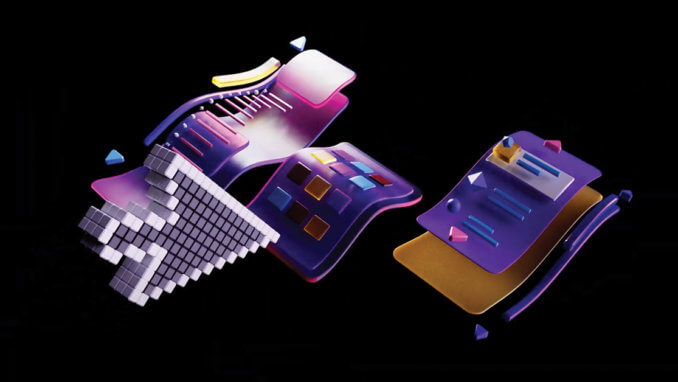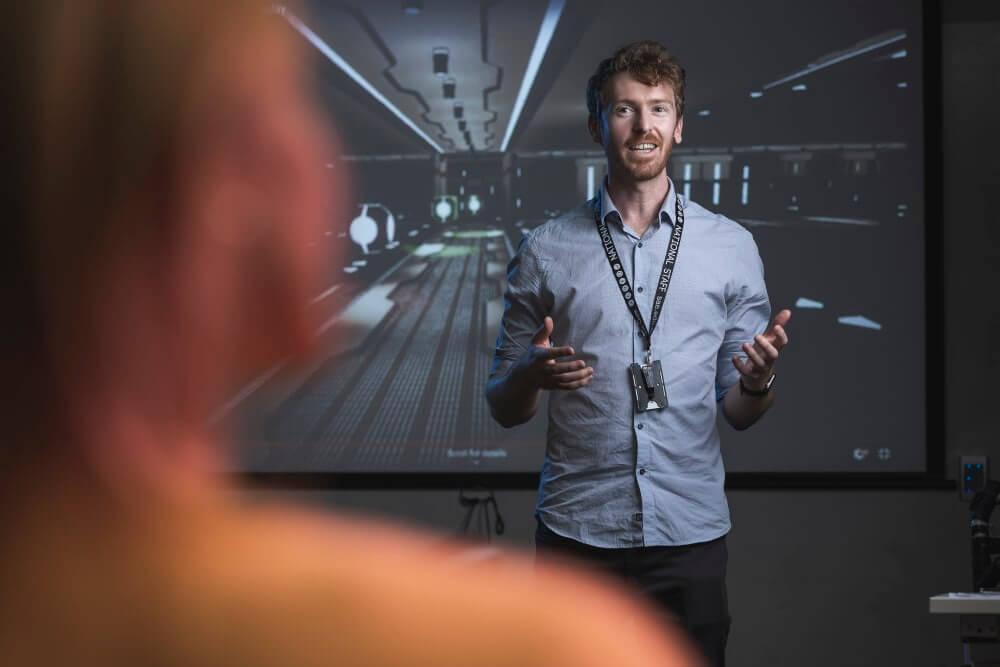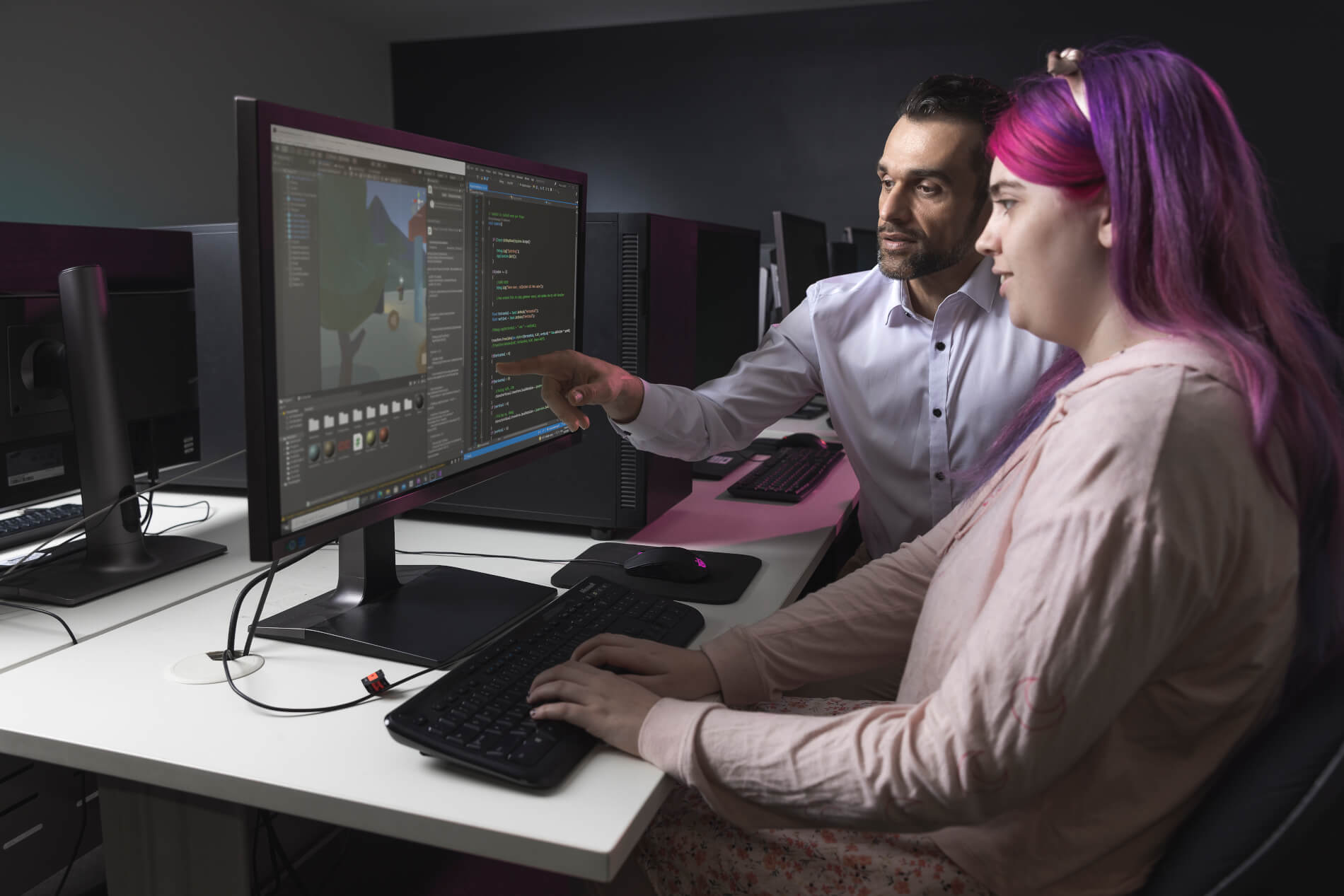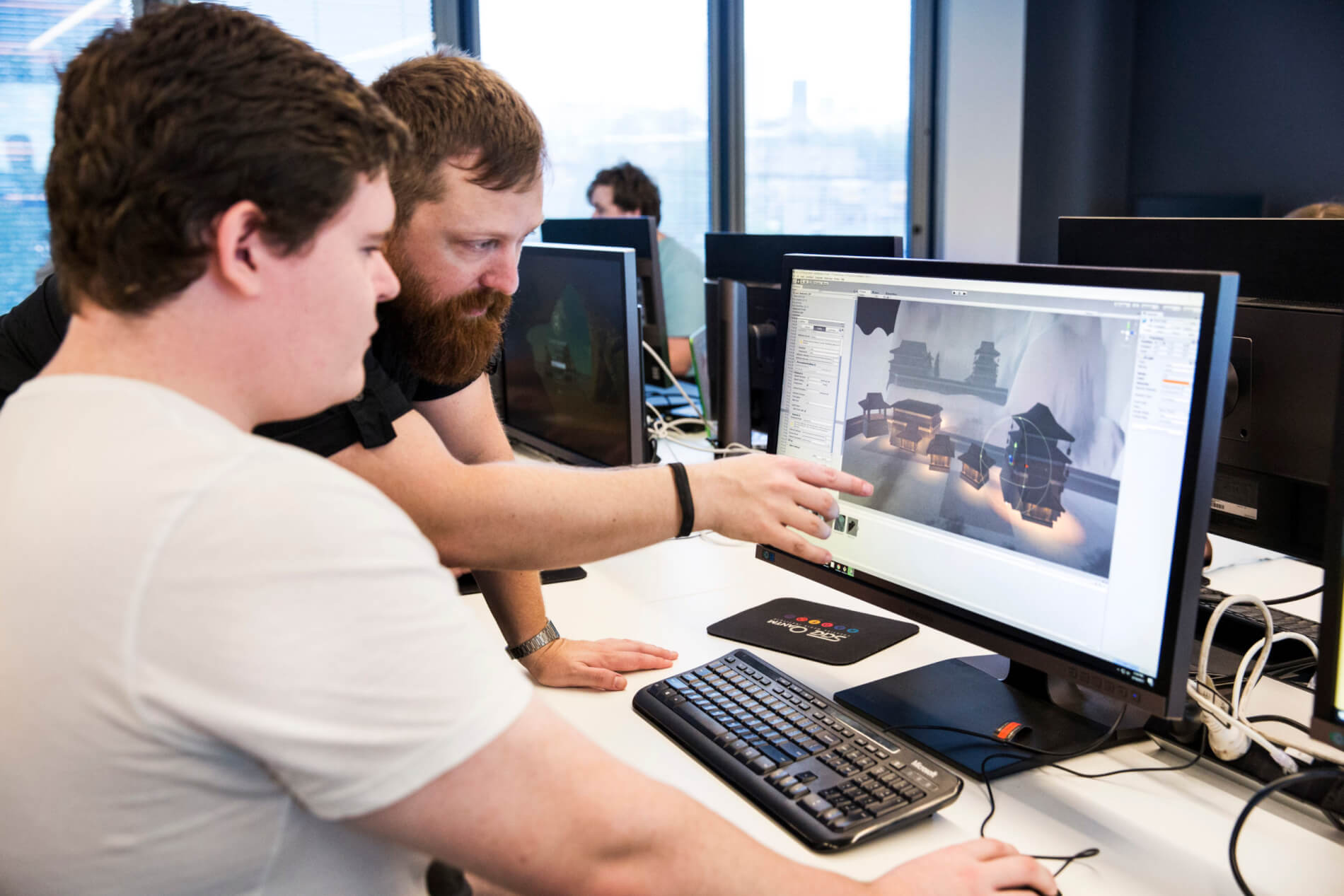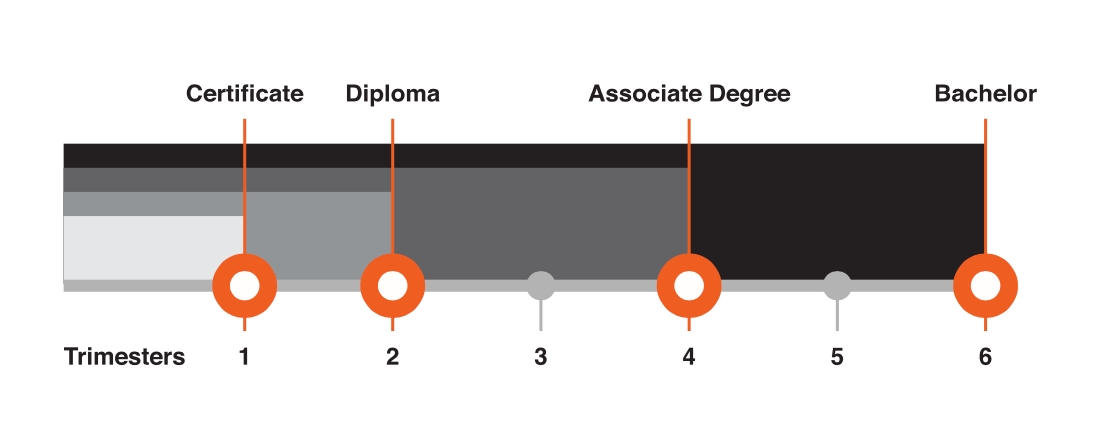Associate Degree of Games Development
START YOUR CAREER AHEAD OF THE GAME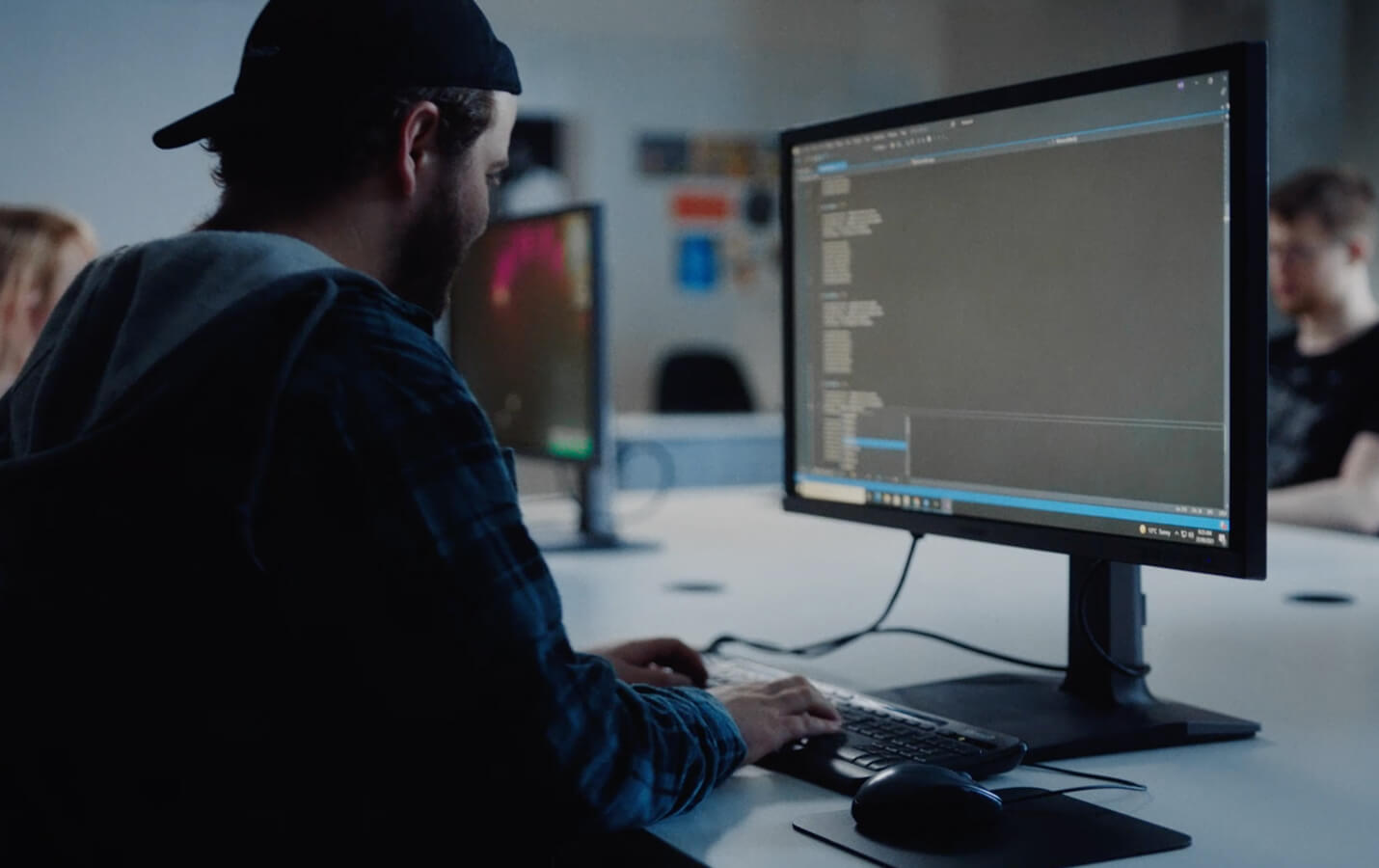
Units x Costs ($AUD)
12 x $2,999
4 x $3,236
Indicative Annual Course Fee*
(based on 1.0 EFTSL)
$24,940 AUD Year 1
$23,992 AUD Year 2
Plus Student Services and Amenities Fee (SSAF)
* The Indicative Annual Course Fee reflects that students are charged fees on a per unit basis and the fee for a unit may increase.
For more information view the SAE Fee Schedule or visit the Fees & Payment page.
Units x Costs ($AUD)
12 x $3,495
4 x $3,773
Indicative Annual Course Fee*
(based on 1.0 EFTSL)
$29,072 AUD Year 1
$27,960 AUD Year 2
Plus Student Services and Amenities Fee (SSAF)
* The Indicative Annual Course Fee reflects that students are charged fees on a per unit basis and the fee for a unit may increase.
For more information view the SAE Fee Schedule or visit the Fees & Payment page.
Complete your course faster by studying units over 15 months (4 trimesters).
Complete your course faster by studying units over 15 months (4 trimesters).
Whilst still classified as a full-time study load, you will complete the units over two years (6 trimesters).
If you want to take a little longer, that’s ok too. We’ll help you work out the best study load to suit your needs.
Note: Part-time is not available for international students.
February 2025
May 2025
September 2025
February 2025
May 2025
September 2025
February 2025
May 2025
September 2025
February 2025
May 2025
September 2025
February 2025
May 2025
September 2025
February 2025
May 2025
September 2025
ASSOCIATE DEGREE OF GAMES DEVELOPMENT
Make the transition from gamer to a game developer with the Associate Degree of Games Development and explore a range of genres for a range of platforms – roleplaying games, platformers, adventure, PC, FPS, mobile, and VR.
Not only are games becoming some of the biggest entertainment properties in the world, but industries are now also using the positive effects of ‘gamification’ and serious games to encourage behavioural change, particularly in fields of healthcare, training, and safety.
Games have the potential to change the world, and we can give you the skills to help change yours. Our associate degree starts at the base level and builds your expertise in programming and design.
As a student of Games at SAE, we offer small classes and one-on-one mentoring opportunities you may not find in a larger university. You’ll develop and apply advanced techniques and strategies to use industry software like Unreal Engine, Unity, Blender and Maya. In addition to this, you could develop for technologies such as Oculus Rift, HTC Vive, Android, and iOS. You’ll also learn the core technologies under the hood of game engines with expert mentors guiding you in industry-standard engine languages like C++ and C#.
Your growth and development as a creative practitioner will be assessed through the completion of industry-based projects. This will ultimately help you build up a body of work and a portfolio to share with potential employers or first clients.
In preparation for an industry that commands agility and adaptability, you’ll cut your creative teeth on projects in partnership with your course peers. As your skills develop and you work on more dynamic projects, you’ll apply your capabilities to cross-discipline projects. By the end of your course, you could be collaborating with fellow students across all SAE disciplines.
With an Associate Degree of Games Development, you’ll be ready for cutting-edge industry roles using modern creative business concepts and strategies. Career options include Mobile App Developer, Level Designer, Systems Designer, or UX Designer.
Ultimately, a qualification from SAE in Games will expand your career. As part of your course, you will be provided practical experience and work with others to help build your network. We’ll also equip you with employability skills, giving you professional strategies in communication and self-promotion.
Your epic adventure in gaming starts here.

Career Outcomes
What jobs will this course lead to?
- Level Designer
- Product Manager
- Developer
- Unity Developer
- Quality Assurance
- Games Writer
- User Interface Designer
- User Experience Designer
- Gameplay Programmer
- Community Manager
- Localisation Manager
- Software Developer
- Tools Developer
What our students say about SAE
Why study an Associate Degree of Games Development at SAE?
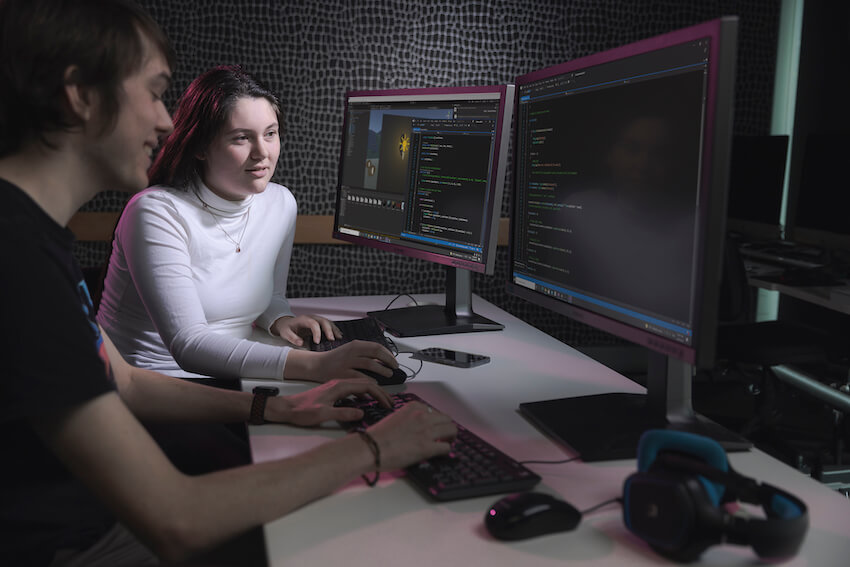
YOUR CAREER IN GAMES BEGINS NOW
Tools & Software



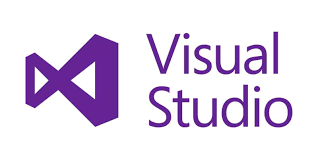
Games skills
Course Structure
The Associate Degree of Games Development has two stages that provide foundational learning and applied skill.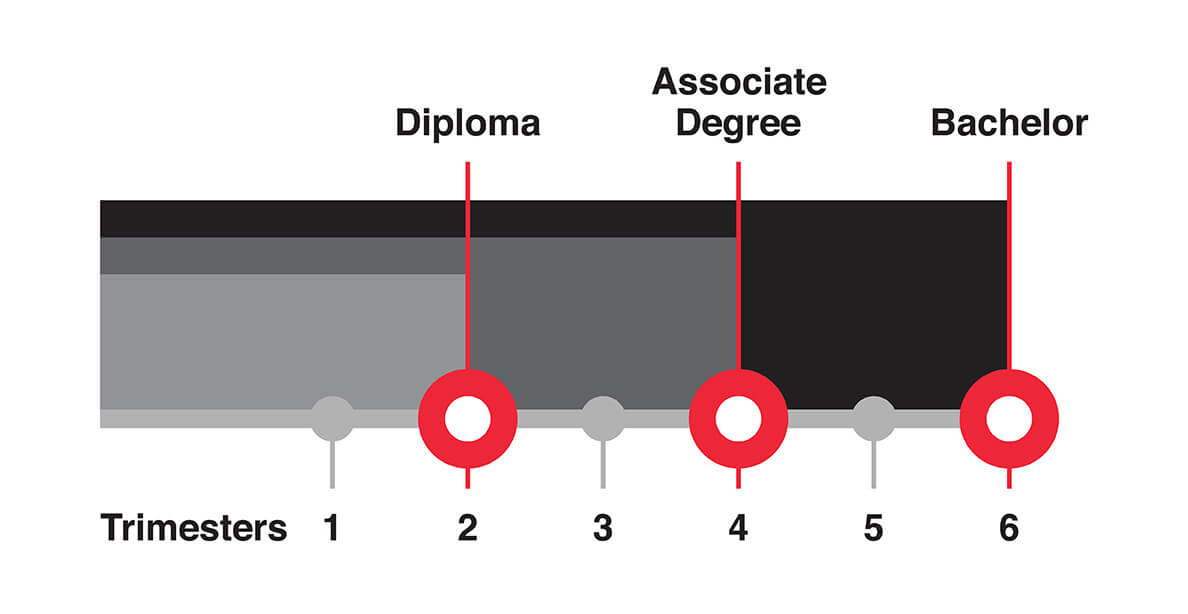
Beyond technical and craft skills, expert practitioners also have an understanding of the historical, scholarly and cultural context of games. Through developing your ability to identify scholarly and authoritative resources, your skills in research, and your capacity to argue, present and write academically, you will become a more literate creative. You'll be able to apply these skills in industry to build better outcomes for your project and company with strong links to both the past and future of Games.
Potential projects: Working in a team, you'll develop a paper and digital presentation in the style of a Games Developer's Conference.
Game scripting is a common method of controlling the behaviour and sequencing of events and interactions within a game or scenario. Scripting can be thought of as a discrete language that uses principles of mathematics, combined with rules of syntax and patterns, to provide instructions for a computer to follow.
In this unit, you will implement a range of basic game functionality by utilising data manipulation, formulas, object creation, defining of behaviours, and working with event systems. You will also build an awareness of how to use these elements within common game scripting languages and environments.
Potential projects:
Build a simple game from scratch using an existing game engine such as Unity with C#.
In order to design and create games we need to be able to understand game systems and how they generate player experience. Games are complex, sitting at the intersection of art, technology, and psychology. To be able to become an effective game developer, it's important to start at a point where you can experiment and see the immediate outcomes of your decisions upon a product. It's for this reason that most game developers start off with small, rapidly developed games or modifications to check their thinking. In this module you will learn how to analyse existing games to identify and describe their core elements and interactions. You will apply this understanding to manipulate existing games in addition to designing new ones, and then check the effectiveness of your work through playtesting and player feedback.
GAD178 will introduce you to 2D Development and is designed to equip you with foundational knowledge and skills necessary for creating 2D games. The course is structured to guide students through the process of planning and developing 2D game assets, laying the groundwork for the creation of a fully realised 2D game concept.
By the end of this unit you will have created the necessary 2D assets required to convey the mood and tone of your own game. With these assets, you will have several fully realised scenes, built in a game engine that depict your vision and demonstrate your understanding of the 2D asset production pipeline.
This unit explores the concepts of entrepreneurship, innovation and project design. You will develop approaches to identify promising opportunities and actionable strategies to transform them into tangible successes. Through exposure to developing new ideas, processes and ways of working - both individually and in entrepreneurial teams - you will hone skills to put creative ideas into practice and achieve real-world impact.
As Alan Kay explained, "The best way to predict the future is to create it", so let's get at it!
Game systems increase in importance and complexity in proportion to the size of a project. This relationship requires modular and reusable systems within game development pipelines, which can be applied to other projects. In this unit, you will extend basic scripting principles by implementing event-systems and applied mathematics in the form of modular game systems. This will involve reviewing good code design by developing or modifying fundamental game systems driven by geometry, vectors, and physics, such as input systems and character controllers, as well as researching, designing, and developing a complex game system, such as a 2D boss battle system, RPG dialogue system, or action-adventure inventory system.
3D Asset Production introduces students to the planning, design and construction of 3D models using industry standard software and techniques. This unit introduces students to concepts of workflows and pipelines in order to develop 3D assets for a number of purposes for games, animation, VFX and real-time applications. Students will develop their understanding of theoretical concepts and the practical application of 3D modelling through a hands-on approach. By planning and creating a number of 3D assets, students will develop their skills in using industry standard 3D modelling software including Maya in addition to being introduced to Substance Painter.
In order to create games, we must be able to manage the complexity of the game development process. To do this successfully, we need to be able to manage group communication and collaboration. This requires common languages and structures that support the variety of disciplines involved. We must also build familiarity with toolsets and existing industry practices, and be able to formulate and execute clear plans for delivering high-quality game assets and features on time. It is also essential to articulate the lessons you learn during development through reflection in a "post mortem" after a project is complete.
In this unit, you will learn about project management techniques and work in a group to pitch, design, plan, and deliver a game in response to project briefs. This will include learning and applying a range of group work and organisational skills, as well as applying iteration processes to your game design. Managing projects in this way will help you expand your existing skills in design and scripting to craft a broader range of gameplay systems and features.
In CIM210 you will be working on interdisciplinary projects that relate to some of the most important concepts in contemporary media production. You will learn practical and analytical skills in order to help you develop your creative powers and meet briefs that take you out of your comfort zone. You will need to bring all of the skills you have learned so far: technical skills, research skills, communication skills and a growth mindset, and be prepared to encounter new concepts and new ways of working.
Media and culture are not simply entertainment, but something that affects the “real world”, our everyday lives, and our worldviews. As such, we will not ask whether media accurately reflect the real world but instead ask how media shape, reinforce, and challenge power structures that influence our understanding of the world and ourselves. This unit takes a ‘critical theory’ approach to analyze media and culture. In this unit, you will explore media texts, contexts and meaning, society and subjectivity, pop culture aesthetics, and critical cultural discourses that inform creative media practices.
Drawing on a range of creative content and analytical frameworks, you will be encouraged to develop ways of thinking about media and culture that demonstrate a broad awareness of aesthetic principles and stylistic trends; subjectivity, agency, ethics, and relations of power; contexts, disciplines and discursive formations. In support of this exploration, you will produce a range of media artifacts that explore and contextualize the relationship of media to culture through individual analysis, collaborative and interdisciplinary creative practice, and critical reflection.
Game development is a long and complicated process. But how do game developers know what ideas to pursue and which ones to give up? This is why we develop rapid prototypes: to test a theory or idea before we lose months or years of time to a concept that is simply too challenging to develop to the standard we desire. These prototypes are created purely to test a concept or tool. They are developed, analysed, and disposed of once we have learned what we can from them.
This unit explores game systems featured in popular computer games across various genres. It builds upon existing design and programming skills through design activities and technical overviews of common 2D and 3D game systems, such as sprite managers and character controllers, as well as genre-specific systems, such as adventure game inventories and role-playing game progression systems. In this unit you will evaluate, design, and implement common game systems through design activities, and choose a game genre for a group project, with each member contributing a different game system.
Worldbuilding for Virtual Environments is a practical unit focused on creating immersive digital worlds. Through hands-on projects, students learn to conceptualise, design, and implement virtual environments in a real-time engine. This unit provides essential skills for aspiring environment artists, virtual production artists, game artists and game designers.
Are you ready to take your game design skills to the next level? This unit delves into the power of games for more than just entertainment. We will explore the invigorating world of Applied Game Design, with a subcontext of meaningful application, where you will learn how to craft engaging experiences that not only entertain but also achieve specific goals for players, such as education, training, or social impact.
We are inherently storytellers, and have been using narrative to understand the world around us, connect with others and find meaning for millenia. In this unit, you will explore the fascinating intersection of storytelling and game development, focusing on how Interactive Digital Narratives create meaningful experiences for players.
Get immersed in the evolution of interactive storytelling, from its rich history to current industry practices and emerging technologies. Throughout this unit, you'll gain insights into narrative structures, character development, world-building, and the use of game mechanics as storytelling devices. You will learn about narrative structures, rhetoric, how to develop a character, and world building as well as how to employ game mechanics to drive a story. Liberate your creative spark, share your stories, and become the architect of boundless immersive worlds and interactive experiences.
In this unit you will explore the core principles and techniques of reading and writing of data as well as optimisation of code and assets. You will learn to utilise various file management techniques to efficiently load assets and ensure seamless gameplay transitions. In your projects, you will explore and gain proficiency in procedural generation techniques, in particular using common techniques such as reading from textures to generate environmental elements.
On top of using file systems, you will learn general optimisation techniques and discover how to fine-tune your games for optimal performance. You’ll have the opportunity to explore rendering and memory optimisation strategies, ensuring smooth gameplay experiences for your players.
Finally you will explore the concept of data serialisation, enabling users to save and load game states seamlessly. By understanding and implementing serialisation techniques, you’ll be able preserve user progress and recall it for users to pick up where they left off.
In this unit you will delve into the exciting world of mobile game development, building upon your existing knowledge of game design and scripting. You will learn effective mobile game programming techniques with a focus on design patterns, and work with powerful tools that can improve the efficiency, maintainability, and scalability of your code. This unit equips you with the skills and knowledge to embark on a successful journey as a mobile game developer, allowing you to create polished and engaging games that stand out from the crowd.
This unit delves into the design and implementation of Artificial Intelligence (AI) specifically for video games. You will explore core game AI concepts, algorithms, and techniques used to create intelligent and believable behaviours for Non-Player Characters (NPCs) and other in-game entities. The unit will cover topics like pathfinding, decision-making, planners, and character animation to bring your game world to life.
Have you ever dreamt of building a game where you can challenge your friends or players worldwide? Networking and Multiplayer Systems is your launchpad! We will equip you with the essential skills to create the backbone of any multiplayer game. You will master network protocols, conquer latency, and ensure smooth data flow for a responsive and engaging experience. We will delve into client-server communication, unravel the mysteries of game state management, and empower you to write code that transmits game information efficiently.
Technical sound designers play a crucial role in bridging the gap between the creative and technical aspects of game sound production. They work with game development tools such as Unity, Unreal Engine, FMOD and Wwise to implement audio into games. They primarily take care of sound implementation tasks, whilst being flexible enough to assist in other areas, such as developing and managing audio assets.
In this unit you will develop technical sound design skills and knowledge, including: middleware integration, audio implementation, object based panning, occlusion, trigger boxes, procedural audio, real-time effects, randomisation, interactions and adaptive music systems and more.
By the end of this unit, you will have a demo video suitable for applying for entry level Technical Sound Designer roles. You will also be equipped with the skills needed to navigate the multifaceted domain of game audio.
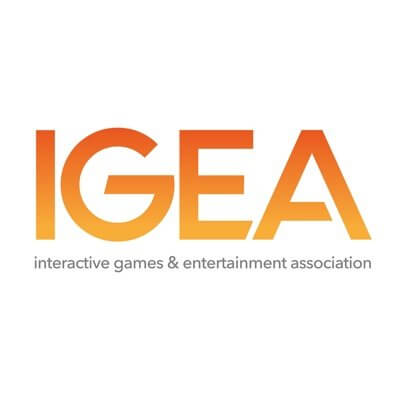
FEE‑HELP* is an Australian Government loan scheme that assists eligible fee paying students pay all or part of their tuition fees. It cannot be used for additional study costs such as accommodation or text books. The total amount of FEE‑HELP a person can use is known as the ‘FEE‑HELP limit’.
Once a person begins using FEE‑HELP, the amount of FEE‑HELP they have left to use is known as their ‘FEE‑HELP balance’.
* Terms and conditions apply. For the latest updates regarding FEE-HELP please refer to sae.edu.au/fees
SAE has three intakes per year: February, May and September. Short courses and certificates courses may have different intake timings. View our academic calendar for trimester start dates or contact your campus for further information.
We carefully design and deliver all our units to help you develop the knowledge you need to be successful in your chosen field of study. Courses and course units at SAE follow best practice teaching and learning.
Certificate
A certificate course serve as an introduction to an area of the creative industries. Potentially a small number of principles or specific skills can be covered during the course. A certificate can also provide broad contextual learning in the creative industries.
Certificates are a great way to gain an introduction to a field of study or learn a skill. Certificate courses can add to your knowledge and your career.
Diplomas
A diploma is niche skills focussed. By undertaking an SAE diploma in animation, audio, film or games, you will develop foundation skills in these specific discipline areas. Students can use the SAE diploma as a pathway to degree level study at SAE and at other Australian tertiary institutions.
Diplomas are a great option for people who haven’t studied before and/or those looking for an alternative pathway to degree level studies.
SAE Diploma courses attract FEE-HELP for Australian students.
Associate Degrees
An associate degree offers a combination of niche skills combined with a greater depth and breadth of theoretical knowledge and analytical skills. An associate degree offers portable skills and develops sustainable, lifelong learning.
Students can use the SAE Associate Degree as a pathway to degree level study at SAE and at other Australian tertiary institutions. SAE Associate Degree courses attract FEE-HELP for Australian students.
Bachelor Degrees
A bachelor degree offers a rigorous combination of niche skills combined with a greater depth and breadth of theoretical knowledge and analytical skills. This knowledge is applicable to both your creative media discipline and the professional world more broadly.
A bachelor degree offers you an entry point to professional work, builds portable skills, and develops sustainable, lifelong learning. Key high learning skills are a requisite of the bachelor degree and graduate study options are available upon completion.
Bachelor degrees are suitable for people looking to develop professional skills and knowledge and to build long-term, successful careers in their industry of choice. SAE Bachelor Degree courses attract FEE-HELP for Australian students.
CREDIT AND RECOGNITION OF PRIOR LEARNING
SAE may recognise your prior learning and may grant credit towards satisfying the requirements for a higher-level program. This is applied where previous learning is considered equivalent to the content and learning outcomes prescribed for units within the program.
For full details, please refer to SAE's policy on recognition of prior learning and credit transfers.
